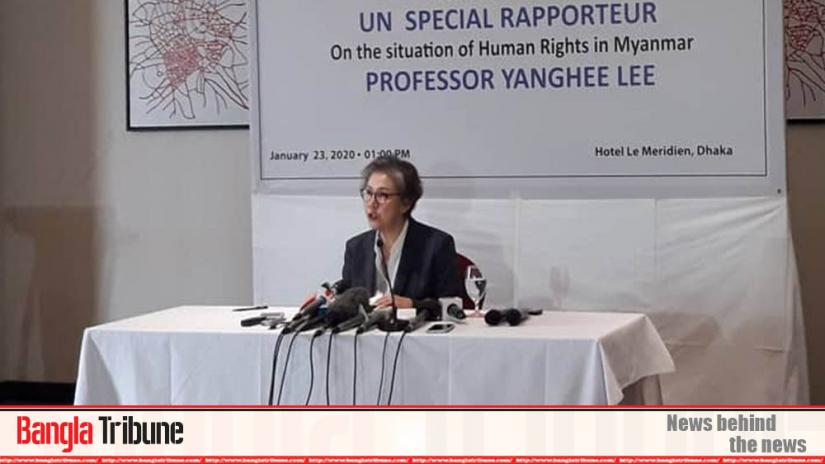 In an effort to ensure accountability for atrocities against Rohingyas, UN Special Rapporteur on Myanmar Yanghee Lee advises setting up a new ad hoc international court.
In an effort to ensure accountability for atrocities against Rohingyas, UN Special Rapporteur on Myanmar Yanghee Lee advises setting up a new ad hoc international court.
Her remarks came on Thursday (Jan 22) while speaking to the media in Bangladesh capital Dhaka wrapping up a five-day visit.
Responding to query on details, Lee said, she would present a full report at the UN Human Rights Council in March, which will include details on the issue.
The UN special rapporteur said she would recommend similar trials held for genocides in Sierra Leon, Rwanda and Bosnia-Herzegovina for the crimes committed against Rohingyas in Myanmar.
She, however, declined to predict on the International Court of Justice's rule, which is expected Thursday.
Myanmar should accept the ICJ's decision, said Lee before urging the international community to make sure that Myanmar works towards solving the crisis.
Lee has held the mandate of special rapporteur since 2014 and enjoyed biannual visits to the country until she was denied entry from December 2017. She will report to the Human Rights Council session in March 2020.
Despite her last request to visit Myanmar being denied by Suu Kyi government, Lee visited Thailand and Bangladesh to speak to interlocutors and receive information about the situation in Myanmar from both sides of the border.
The International Court of Justice on Thursday will rule on a request for emergency measures by the Gambia, which has filed a case against Myanmar accusing it of genocide against the Muslim minority Rohingya population.
The small West African country launched the lawsuit at the UN's highest body for disputes between states in November, accusing it of violating the 1948 Genocide Convention.
The case has not yet been heard in full and the ruling on Thursday only deals with Gambia's request for so-called preliminary measures. It does not indicate how the court may rule in a final decision, which could take years to reach.
More than 730,000 Rohingya fled Myanmar after a military-led crackdown in 2017 and were forced into squalid camps across the border in Bangladesh. UN investigators concluded the military campaign was executed with "genocidal intent".


